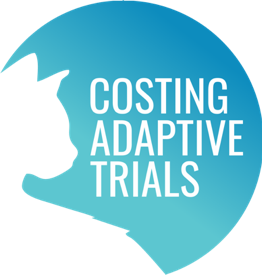Adaptive designs
The methodology group works on a number of projects relating to adaptive clinical trial designs. One recently funded such project is Costing Adaptive Trials.
Costing Adaptive Trials
Developing best practice costing guidance for CTUs supporting adaptive trials

Background
There is a growing focus on increasing the efficiency of clinical trials. A methodological approach that can address this is Adaptive Designs (ADs). An AD allows the opportunity for information gathered during the trial to be used to make modifications, in a statistically robust way, to help reach valid conclusions. ADs have been increasingly used, including multiple examples funded by the NIHR and supported by UK Clinical Trials Units (CTUs). Despite guidance available on ADs, a key outstanding issue is understanding better what funding and personnel resources are required to successfully conduct an adaptive trial and how these compare to traditional trial designs.
Objectives
This project has the following objectives:
- To investigate the CTU-related costs of ADs compared to standard alternatives through costing information from at least six UK CTUs for five mock trial scenarios.
- To further investigate reasons for any differences between CTUs captured using qualitative interviews.
- To determine best-practice guidance on a costing model for ADs.
- To prioritise future methodological research that improve the cost-effectiveness of ADs.
Research plan
We will ask interested CTUs to cost the resources they would request for supporting five mock trial scenarios. For each scenario an adaptive design is specified and the closest analogous non-adaptive design. Two of the scenarios represent more advanced trial designs that may not be widely used – CTUs may choose not to cost these if they feel their CTU would not support such a trial.
Qualitative research (telephone interviews) will then explore the costings provided with the CTU staff who performed the costing. Results from the actual costing and the qualitative interviews will form the basis of best-practice guidance on the appropriate level of resources to include for adaptive trials.